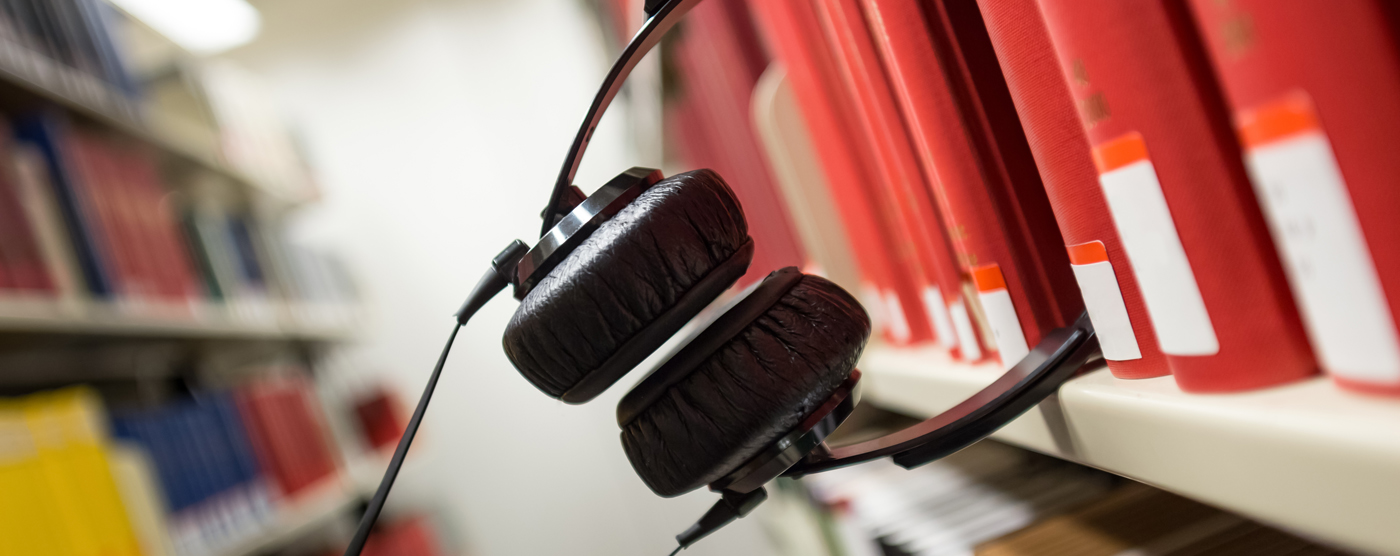Studying to Music Can Put Your Brain in the Right Frame of Mind

What do Spotify, Pandora, iTunes and YouTube all have in common? If you said they’re some of your favorite go-to sights to hear your favorite music, then you may want to tune in more often. Did you know that studying to the right kind of music can make you feel less stressed, more focused and dare we say it, smarter? It’s true.
Let’s face it, no one likes to study. But how cool is it that music can be just what you need to get through the books easier while making your studying more productive? Pretty cool, right? Want to hear more? Sit back, grab your headphones and learn how studying to the right kind of music may be more than just music to your ears.
Benefits of studying to music
Do you listen to music while you study, or do you prefer total silence? The jury is out on which is better since everyone is different; however, several research studies are proving that listening to the right kind of music can put your mind into study mode.
Here are some of the benefits of tuning in to the right tunes:
- Relaxes the mind
- Increases concentration
- Lessens distractions
- Improves focus
- Improves performance in high-pressure situations, such as mid-terms and finals week
Best genres to study to
Music is universal, and everyone’s tastes are different. You might be experiencing that right now with a roommate or a group of friends. What soothes one person might drive the other one to pull their hair out. Sound familiar? Since we all have different personalities, music preferences and even study habits you’re probably wondering which type of music is best. We’ve done the homework for you (you’re welcome) with some suggested genres and examples of each that may help put your brain in the right frame of mind. Take a listen.
Classical music—Mind-boosting effect helps with mathematics
Before you dismiss classical music as “not your thing,” it’s worth a try. You’ve most likely heard of Mozart, one of our world’s greatest classical composers, but have you heard of the Mozart Effect? A group of studies found listening to Mozart can cause a temporary “enhancement of spatial temporal reasoning performance,” which means the ability to think through long-term, more abstract solutions to logical problems. In fact, the Mozart Effect has little to do with listening to Mozart and more to do with listening to music that activates a certain part of the brain. Even Albert Einstein was a fan of Mozart!
When it’s crunch time and you’re burning the midnight oil, try listening to Baroque classical music. Composers such as Bach, Vivaldi and Handel are known for their up-beat music composed of 60 beats-per-minute. Studies revealed those who listened to music that played at 60 beats-per-minute showed a dramatic reduction in stress and an increased sense of relaxation It’s become a popular choice when you need to get work done.
Here are some benefits of listening to classical music:
- Improves test scores
- Reduces learning time
- Improves creativity and clarity
- Integrates both sides of the brain for more efficient learning
- Raises IQ scores
Sounds of nature—Keeps your brain engaged by increasing concentration
Have you ever tried studying in a noisy room? It can be annoying and frustrating to say the least. Calming music Nature sounds such as waterfalls, rain and the seashore, for example, can be extremely effective in masking white noise.
Here are some benefits or studying to the calming music of nature sounds:
- Masks voices and white noise which can be distracting
- Enhances cognitive functioning
- Optimizes concentration
Songs without lyrics—Great choice when reading and writing
The last thing you need is more words in your head when you’re reading your textbooks or writing a paper. Listening to songs without lyrics is a great way to stay focused without distraction.
Brian Eno’s Music for Airports—Chill-out electronic music for serious studying and deep concentration
You may want to crank this up for your next cramming session before your big exam. This album was specifically designed to relax stressed out travelers at airports. It’s also been shown as an effective tool when it’s time for serious studying and deep concentration.
Creating a playlist
It may sound obvious, but research revealed brain function decreases when you listen to music and sounds you don’t enjoy, making it difficult to focus and concentrate. So, be sure to choose music and sounds that make you happy. Here are some tips for creating your playlist:
- Create your playlist in advance so you’re not fumbling to find a new song every few minutes.
- Keep your playlist to around 40-50 minutes—this is a great reminder to take a study break when it’s over. Plus, it helps you plan your study sessions to meet your concentration level.
- Avoid listening to the radio. Dialogue between radio personalities and commercials can be distracting.
- Turn it down. Listening to music at a moderate level is best.
With the new semester kicking off, now is the best time to start creating your playlist so it’s ready to go when you need it. Happy listening!

